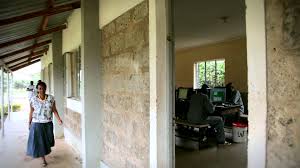Government Grants
Business Grants
Home Owner Programs
Federal Programs
About Us
Gender Responsive Training
Data collected by the Sentencing Project (Zeng, 2022) (Kaeble, 2023) (Gender-Responsive Policy Development in Corrections:
What We Know and Roadmaps for Change)[1] reveals that between 1980 and 2019, the number of incarcerated women in jails and prison increased by more than 700%, rising from a total of 26,378 in 1980 to 222,455 in 201 9. As the number of women involved in the criminal justice system continues to grow and out pace that of men, the need to understand and apply gender-responsive strategies is needed more now than ever before.
Gender responsiveness is based on the characteristics of justice-involved women, how they differ from justice-involved men, and how the system should respond to them differently.
By no means does being gender responsive substitute for accountability or the safety of an institution or a community corrections office, yet it looks at the reasons why women enter the criminal justice system and how the system can respond differently to gain better outcomes not only for the justice-involved women but for the staff as well.
While staff training is a vital component to the operation of any facility or community corrections office, gender-responsive training has not taken hold across the country.
Decreasing budgets and staffing shortages have left agencies scrambling to get new hires into their open positions, retain the current staff they have, and continue with the required basic training.
It has become apparent that gender-responsive training is not considered a requirement for basic training.
NIC is seeking to develop a gender-responsive basic training to give the country’s correctional agencies an additional resource to assist them with the increasing number of women involved with the criminal justice system.
1. Carson, E.A.
(2022).
Prisoners in 2021 – Statistical Tables.
Washington, DC:
Bureau of Justice Statistics; Zeng, Z.
(2022) Jail Inmates in 2021 – Statistical Tables.
Washington, DC:
Bureau of Justice Statistics; Kaeble, D.
(2023).
Probation and Parole in the United States, 202 1. Washington, DC:
Bureau of Justice Statistics.[1] 2. Gender-Responsive Policy Development in Corrections:
What We Know and Roadmaps for Change National Institute of Corrections (nicic.gov)
What We Know and Roadmaps for Change)[1] reveals that between 1980 and 2019, the number of incarcerated women in jails and prison increased by more than 700%, rising from a total of 26,378 in 1980 to 222,455 in 201 9. As the number of women involved in the criminal justice system continues to grow and out pace that of men, the need to understand and apply gender-responsive strategies is needed more now than ever before.
Gender responsiveness is based on the characteristics of justice-involved women, how they differ from justice-involved men, and how the system should respond to them differently.
By no means does being gender responsive substitute for accountability or the safety of an institution or a community corrections office, yet it looks at the reasons why women enter the criminal justice system and how the system can respond differently to gain better outcomes not only for the justice-involved women but for the staff as well.
While staff training is a vital component to the operation of any facility or community corrections office, gender-responsive training has not taken hold across the country.
Decreasing budgets and staffing shortages have left agencies scrambling to get new hires into their open positions, retain the current staff they have, and continue with the required basic training.
It has become apparent that gender-responsive training is not considered a requirement for basic training.
NIC is seeking to develop a gender-responsive basic training to give the country’s correctional agencies an additional resource to assist them with the increasing number of women involved with the criminal justice system.
1. Carson, E.A.
(2022).
Prisoners in 2021 – Statistical Tables.
Washington, DC:
Bureau of Justice Statistics; Zeng, Z.
(2022) Jail Inmates in 2021 – Statistical Tables.
Washington, DC:
Bureau of Justice Statistics; Kaeble, D.
(2023).
Probation and Parole in the United States, 202 1. Washington, DC:
Bureau of Justice Statistics.[1] 2. Gender-Responsive Policy Development in Corrections:
What We Know and Roadmaps for Change National Institute of Corrections (nicic.gov)
Obtain Full Opportunity Text:
NIC Website
Additional Information of Eligibility:
NIC invites applications from nonprofit organizations (including faith-based, community, and tribal organizations), for-profit organizations (including tribal for-profit organizations), and institutions of higher education (including tribal institutions of higher education).
Recipients, including for-profit organizations, must agree to waive any profit or fee for services.
Foreign governments, international organizations, and non-governmental international organizations/institutions are not eligible to apply.
Proof of 501(c) (3) status as determined by the Internal Revenue Service or an authorizing tribal resolution is required.NIC welcomes applications that involve two or more entities; however, one eligible entity must be the applicant and the others must be proposed as subrecipients.
The applicant must be the entity with primary responsibility for administering the funding and managing the entire program.
Only one (1) application will be accepted from a submitting organization.
Full Opportunity Web Address:
https://nicic.gov/about-nic/funding-opportunities/gender-responsive-training
Contact:
Agency Email Description:
Form and application information
Agency Email:
Date Posted:
2023-12-07
Application Due Date:
Archive Date:
2024-03-06
Social Entrepreneurship
Spotlight
Partnerships in Social Enterprises Can Increase Social Impact

Chief executive of HCT, Dai Powell, shares the experiences and practical lessons he learned along the way when teaming up with Ealing Community Transport to deliver site transport during the Olympic Park construction.

